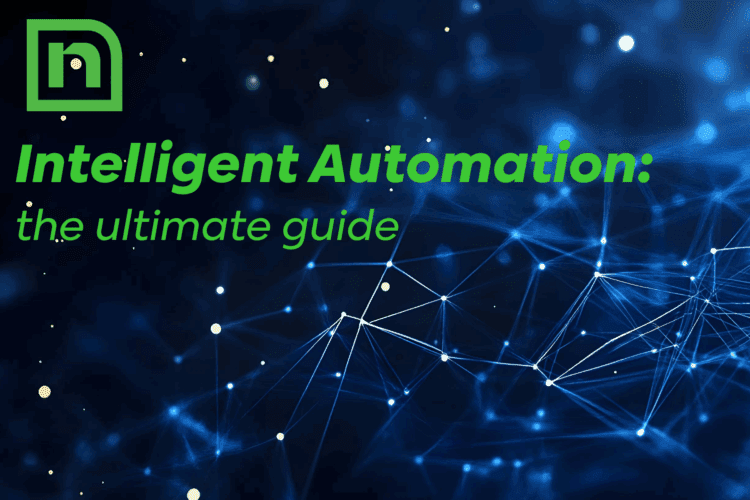Intelligent document processing (IDP) use cases are transforming the way organizations across industries process documents and providing them with many game-changing benefits along the way.
While traditional automation methods have successfully processed many types of documents, they’re often unable to handle more challenging cases. For example, PDFs, images, emails, and other documents may contain unstructured data. Fortunately, IDP solutions are freeing teams from having to spend hours sorting all this extra data out.
Let’s explore five IDP use cases that will improve your work life and illustrate how useful this technology can be in a wide variety of industries.
Top 5 Intelligent Document Processing (IDP) Use Cases
1. Know Your Customer (KYC) and Customer Onboarding
IDP gives the modern digital worker skills that empower them to read, process, and route business documents relating to KYC and customer onboarding processes. As a result, the quality of work increases, and your customers enjoy faster service from the first customer interaction and from there on out.
2. Banking Organizations
Banking organizations process plenty of documents each day, from credit card applications to depositing checks. Given that many of the documents banking organizations handle contain unstructured data, IDP is growing in popularity. It can save tremendous time by automating the tasks involving these documents and reduce the risk of error along the way. Common banking processes IDP is used for include:
- Managing financial applications
- Maintaining and updating financial records
- Credit disbursement
- Personal finance management
IDP is used in a similar way in financial services, with accounting and finance organizations using it to better manage the massive amount of sensitive data they manage daily. It’s most often applied to tasks like:
- Payroll management
- Expense management
- Paying invoices
- Filling out tax returns
3. Transportation and Logistics
IDP offers a robust pathway to digitize shipping-related documents and automate the logistics and shipping process. This includes digitization and extraction of data from documents like waybills, receipts, and bills of lading. Automation also provides a means to expedite the flow of freight through carriers, customs, and forwarders.
4. Medical Billing
Many healthcare firms struggle with high volumes of time-consuming manual data entry, especially for CMS 1500 forms, which are essential for medical claim processing. Manually managing this process leads to issues with billing and patient enrollment, unnecessary claim denials, and a backlog that grows all the while. IDP can help, as they’re configurable to handle CMS 1500 forms. It can accurately extract patient information, significantly reduce data entry time, and improve compliance with CMS guidelines thanks to rule-based validations.
IDP has also made its mark in the medical world by helping healthcare professionals manage several other routine administrative tasks, such as:
- Managing prescriptions
- Digitizing and updating medical records
- Accessing patient notes
- Managing medical databases
5. Procure to Pay and Order to Cash
Lastly, let’s dig into an IDP use case that applies to every organization, regardless of its industry. IDP provides pre-trained skills for extracting data from a variety of documents related to procure to pay and order to cash. This includes the automatic extraction of data from things like purchase orders, invoices, and receipts. It can even integrate these documents’ data into the financial process. The value of this use case is profound, especially considering the time-consuming, error-fraught nature of managing these processes manually.
One of our customers, WEGMANN Automotive, an auto parts manufacturer in Murfreesboro, Tennessee, used IDP to address their document processing challenges. Among the most significant challenges they were facing: a high volume of invoices, orders, and commercial invoices, all of which varied in structure, format, and content. Even worse, many of the documents they handled contained unstructured data that was time-consuming to process manually.
But IDP transformed WEGMANN Automotive’s document processing strategy, bringing them benefits like:
- They gained operational efficiency with streamlined document processing and automated workflows.
- The ability to adapt to additional Vendors and Customers without recreating additional processes or templates.
- It reduced the need for manual intervention, leading to operational cost savings. This allowed them to allocate resources strategically and improve customer satisfaction.
You can get the rest of WEGMANN Automotive’s story below.
It’s Time to Embrace Intelligent Document Processing
As these popular examples have demonstrated, IDP can offer a wide variety of benefits across numerous different processes and industries. Embracing intelligent document processing (IDP) is more than a technological upgrade; it’s a strategic move toward efficiency and accuracy in document processing.
Want More Content Like This?
Subscribe to the Naviant Blog. Each Thursday, we’ll send you a recap of our latest info-packed blog so you can be among the first to access the latest trends and expert tips on workflow, intelligent automation, the cloud, and more.







